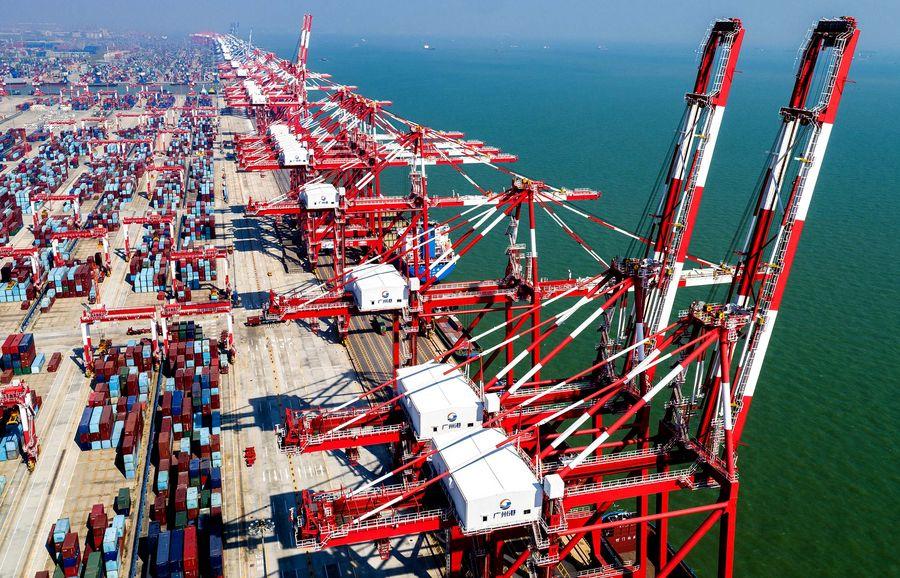
 0 Comment(s)
0 Comment(s) Print
Print E-mail China.org.cn, May 8, 2024
E-mail China.org.cn, May 8, 2024

A view of Nansha Port in Guangzhou, south China's Guangdong province. [Photo/Xinhua]
Cooperation between China and Portuguese-speaking countries is expected to deepen as the two sides jointly signed a new plan to promote multilateral economic and trade cooperation for the next three years at the 6th Ministerial Conference of the Forum for Economic and Trade Cooperation, held late last month in Macao, China.
The Forum for Economic and Trade Cooperation between China and Portuguese-speaking Countries, also known as Forum Macao, was initiated by the Chinese government in 2003 in conjunction with several Portuguese-speaking countries. It serves as a multilateral, intergovernmental cooperation platform aimed at promoting economic and trade exchanges between China and Portuguese-speaking countries.
Since its inception, the forum has helped establish multiple and practical cooperation mechanisms to facilitate policy synergies between countries. Specifically, the Ministerial Conference is the main decision-making body, the Strategic Plan guides what actions to take, and the permanent secretariat is responsible for coordinating and managing the forum's agenda.
Given this pragmatic and effective working mechanism, economic and trade cooperation between China and Portuguese-speaking countries has witnessed remarkable achievements over the past two decades.
In 2003, China's trade with Portuguese-speaking countries totaled $11 billion. Eight years later, in 2011, the figure rose to $100 billion. By 2021, the trade between China and Portuguese-speaking countries had surpassed $200 billion.
In 2023, the value of imports and exports between China and Portuguese-speaking countries reached $220.9 billion, an increase of nearly $90 billion from 10 years ago. Moreover, China's direct investment in Portuguese-speaking countries increased from $56 million in 2003 to $6.91 billion in 2022, marking a 122-fold increase. These investments span various sectors, including finance, energy, agriculture and infrastructure, and have played a crucial role in boosting production capacity, creating job opportunities for local residents, and improving people's lives.
Lastly, the forum has helped promote closer cultural and people-to-people exchanges between China and Portuguese-speaking countries. So far, the Cultural Week of China and Portuguese-speaking Countries has been held 15 times, and cultural activities such as carnivals, art festivals, cultural forums, and art exhibitions have enhanced mutual understanding and friendship between China and Portuguese-speaking countries.
Cooperation between China and Portuguese-speaking countries has emerged as a model for friendly collaboration. It serves as a shining example of how nations, despite their differences in social systems, cultures, developmental stages, and geographical sizes, can work together to build a global community of shared future.
China's development will provide more opportunities and a broader space for cooperation between China and Portuguese-speaking countries. As such, Forum Macao is expected to promote pragmatic cooperation not only in traditional fields such as trade, agriculture, fisheries, and infrastructure but also unlock untapped collaboration potential in the digital economy and climate change, contributing to building a global community of shared future.
The author is a Ph.D. candidate in international relations at the Institute for Social and Cultural Research, Macao University of Science and Technology.
Opinion articles reflect the views of their authors, not necessarily those of China.org.cn.
Go to Forum >>0 Comment(s)